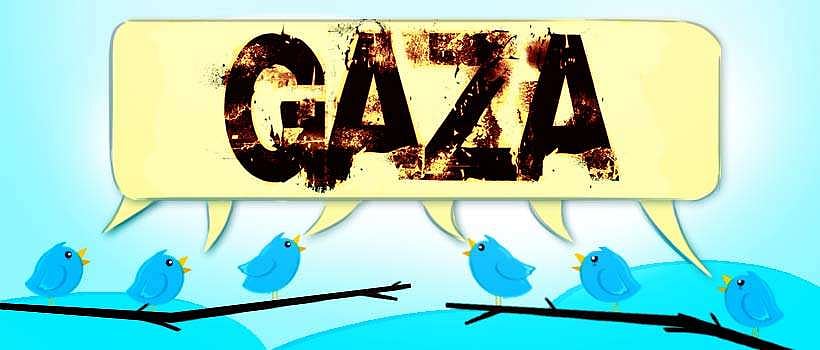Gaza On Twitter
Has the Gaza conflict split news and social media down the middle politically?


Support Independent Media
The media must be free and fair, uninfluenced by corporate or state interests. That's why you, the public, need to pay to keep news free.
ContributeFormer Editor-in-Chief of Outlook Vinod Mehta once said in an interview that television news is about yes or no to every question.“There is no space for any ‘grey’ in the visual medium”, Mehta had commented. This was more than two years ago, in 2012, when social media – though very much alive and kicking – wasn’t quite the tour de force it is now in terms of moulding political and social discourse.
Today, social media – and Twitter in particular – has come to play a fairly important role in dissemination of news and opinion. Owing to the inherently irreverent and non-hierarchical structure of the internet, Twitter has also perhaps changed the way in which journalists and journalism function. There is an increasing sense of accountability – forced at times but encouraging nonetheless – and Indian journalism has, by and large, benefited.
While dialogue on Twitter often helps separate the signal from the noise (of which we have no dearth in TV discourses), it seems the problem of adhering to a binary yes-or-no position plagues the social media space too. This lack of nuance has become evident once again in the highly polarised debate on the Israel-Palestine conflict.
Certain issues do evoke extreme responses, and Twitter’s 140 characters, in all fairness, aren’t enough for complexity. So in that case, would it perhaps be prudent on the part of journalists not to make sweeping generalizations on Twitter? Most journalists and news anchors across the world certainly don’t seem to think so – many have in fact taken rather strong duopolistic positions on the issue. The hugely popular American political satirist Bill Maher raised a storm with this much-retweeted tweet of his:
On the other end of the spectrum was Maher’s contemporary and The Daily Show’s host Jon Stewart, who completely took Israel apart – much to the delight of the pro-Palestine section of Twitter. Stewart, incidentally, is Jewish.
Closer home, Indian journalists and commentators too minced no words in announcing their allegiances on Twitter. And predictably there has been no attempt at subtleness. The division has been on expected lines. The traditional “right-wing nationalist” section has aligned their loyalties to Israel and most major voices have had something to offer in its unwavering support.
Heart bleeds for bleeding-heart Pakistanis whose hearts bleed for Palestine. Do they recall what their army did to the Palestinians in 1970? — Rohan Joshi (@filter_c) July 21, 2014
On the other hand, the pro-Palestine fragment has also worn its heart proudly on its sleeve, pontificating on how Israel is the only one at fault.
A closer dissection of a few Twitter feeds hint very clearly that some positions are a result of superimposing local sentiments (read derision for Pakistan or the USA, depending on which side one is) in the context of Gaza. Pakistan massacring Bangladeshi soldiers in 1971 cannot possibly be used as a basis for a pro-Israel position; just as disdain for the USA’s ways doesn’t legitimise a pro-Palestine stand. Not for a journalist, at least.
The Israel-Palestine conflict is much more complex – as complex as they come. It is certainly not just about a better-armed nation trying to violate the territorial sanctity of an inferior neighbour. At the same time, it is also unfair to treat it as a case of a country simply securing its integrity by neutralising terror elements – for the alleged “terror element” is a democratically-elected entity. To add to all of that, there are years (and layers) of highly convoluted – and even more sensitive – historical context.
The Indian mainstream media – or the MSM as many on Twitter call it not-so-fondly – doesn’t have a single reporter on ground at Gaza and all we have as far as the Indian perspective goes are opinions – not a single report.

Power NL-TNM Election Fund
General elections are around the corner, and Newslaundry and The News Minute have ambitious plans together to focus on the issues that really matter to the voter. From political funding to battleground states, media coverage to 10 years of Modi, choose a project you would like to support and power our journalism.
Ground reportage is central to public interest journalism. Only readers like you can make it possible. Will you?
